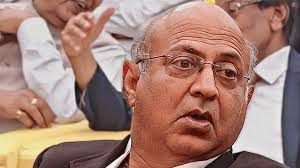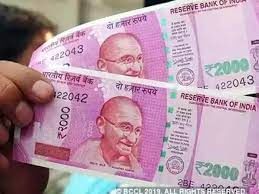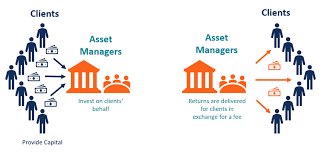UPSC Daily Current Affairs- 21st May 2023 | Current Affairs & Hindu Analysis: Daily, Weekly & Monthly PDF Download
GS-I
WHO Launches Global Network to Detect Infectious Disease Threat
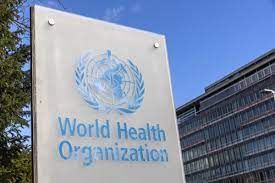
Why in News?
The World Health Organization has launched a global network to help swiftly detect the threat from infectious diseases, like COVID-19, and share the information to prevent their spread.
About International Pathogen Surveillance Network (IPSN):
- The International Pathogen Surveillance Network (IPSN) is a global network of pathogen genomic actors.
- It is hosted by the WHO Hub for Pandemic and Epidemic Intelligence.
- Its aim isto accelerate progress on the deployment of pathogen genomics and improve public health decision-making.
- By strengthening the pathogen genomic surveillance ecosystem, the IPSN enables faster detection of new pathogens and the enhanced tracking of the spread and evolution of diseases.
- This in turn can drive better public health responses.
- The IPSN supports ongoing disease surveillance and will help detect and fully characterize new disease threats before they become epidemics or pandemics.
What is the Vision/Mission Behind IPSN?
- A world where every country has equitable access to sustained capacity for genomic sequencing and analytics as part of its public health surveillance system.
What is the Need for an International Surveillance Network for Pathogens?
- COVID-19 highlighted the critical role pathogen genomics plays when responding to pandemic threats.
- As pointed out by the WHO that without the rapid sequencing of the SARS CoV-2 virus, vaccines would not have been as effective and would not have become available as quickly.
- New and more transmissible variants of the virus would also not have been identified as quickly.
- WHO said that genomics lies at the heart of effective epidemic and pandemic preparedness and response.
- While the pandemic spurred countries to scale up their genomics capacity, the agency warned that many still lack effective systems for collecting and analysing samples.
- The IPSN would help address such challenges.
Areas of Work for IPSN:
- Communities of practice to solve common challenges –
- At the heart of the IPSN’s work is a set of communities of practice that enable exchange between partners working on pathogen genomics.
- The first of these is the IPSN Community of Practice on genomics data.
- Its projects and deliverables aim to harmonize data standards and protocols, ensure genomics data tools are fit for purpose, and that data and benefits sharing are enhanced.
- Country scale-up accelerator to align efforts and enable South-South exchange –
- The IPSN has established a Country Scale-Up Accelerator (CSUA) to accelerate and amplify the efforts of IPSN members to rapidly increase country capacity for pathogen genomic surveillance.
- The CSUA’s projects and deliverables aim to create a set of capacity-building tools as global goods, and to empower increased South-South bilateral and subregional partnerships for capacity development.
- Funding to improve equity and to power IPSN projects –
- To ensure improved coordination and harmonization of donor efforts, the IPSN has established a funders forum.
- The forum which works with the Secretariat to support IPSN activities and members including a small grants fund.
- High-level advocacy/communications to keep genomic surveillance on the agenda –
- With active engagement of countries, partners, regional organizations and WHO, the IPSN keeps pathogen genomic surveillance on the global agenda and ensures strategic buy-in.
- Global partners forum for pathogen genomics to bring partners together –
- The annual forum brings together key players from all IPSN entities involved in pathogen genomic surveillance.
- The forum will help in providing a high-profile stage to build partnerships, introduce innovations, socialize ideas and advocate for political and financial commitments.
Outcomes of IPSN:
- To build towards a strong disease surveillance system, IPSN members and their work will result in:
- Stronger national and international surveillance systems better able to detect and characterize new threats and reduce endemic burdens;
- Increased harmonization and innovation in pathogen genomics;
- Increased scale and efficiency of country capacity building efforts; and
- Increased political attention and financing efficiency.
Source: The Hindu
GS-II
Sapre Committee
Why in News?
The Supreme Court made public the report of the court-appointed expert panel in the Hindenburg-Adani row case.
About Justice A.M. Sapre committee
- It is a six-member expert committee constituted by the Supreme Court in the Hindenburg-Adani allegations case and headed by former Supreme Court judge, Justice A.M. Sapre.
- Panel findings: It gave the Supreme Court a detailed assessment of the situation which could have led to volatility in the securities market due to the Hindenburg-Adani row.
- The committee also looked at two other issues — investor awareness and whether there was any regulatory failure that led to the conclusions drawn by the Hindenburg report.
- It found that there was no evidence of a “regulatory failure" on the part of SEBI.
- However, it acknowledged that there is a need for an effective enforcement policy.
Source: The Hindu
G7 Hiroshima Summit 2023
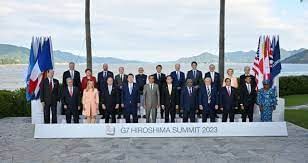
Why in News?
The Leaders of the Group of Seven (G7) met in Hiroshima for 49thannual Summit. This year’s summit is hosted by Japan in its capacity as the President of the grouping.
- The choice of Hiroshima as host city of the G7 Summit underlines Prime Minister Kishida’s commitment to put nuclear disarmament and non-proliferation prominently on the agenda of the meeting.
- PM Modi also attended the Summit at the invitation of Japanese Prime Minister
- On the second day of summit, the participating leaders issued a leaders' communiqué which will be adopted at the end of the summit on 21st
In Focus: G7
Origin
- The origin of G7 lies in the oil shocks of 1973 and the corresponding financial crisis.
- In order to address the situation after oil shock, the heads of the world's six leading industrial nations decided to hold a meeting in 1975.
- These six nations were - the US, UK, France, Germany (West), Japan and Italy.
- These countries were joined by Canada in 1976 and G7 came into existence.
Current Members
- US, UK, Canada, France, Germany, Italy and Japan
- It can be said that the members of this group are the most developed and the advanced economies of the world.
- The European Union is also represented within the G7.
Purpose of G7
- To determine the course of multilateral discourse
- To shape political responses to global challenges.
- Basically, G7 provides a platform to discuss and coordinate solutions to major global issues, especially in the areas of trade, security, economics, and climate change.
Significance:
- Economic Significance
- The G7 nations account for
- close to 60 percent of global net wealth,
- 46 percent of global gross domestic product, and
- about 770 million people or 10 percent of the world's population.
- The G7 nations account for
- Political Significance
- Political heavy weights are capable of shaping the response of Multilateral challenges.
- In 1999, it created the Financial Stability Forum in order to manage the international monetary system
- 47th summit in June 2021 had focused on the recovery from ongoing COVID-19 pandemic. It promised to distribute 1 billion vaccines to poorer countries.
- Its theme was Global Action to Build Back Better.
- Developmental Significance
- G-7 provided $300 million in 1997 to help build the containment of the reactor meltdown at Chernobyl.
- G7 played crucial role in setting up a global fund to fight malaria and Aids in 2002.
- In October 2020, G7 finance ministers backed an extension of a G20 bilateral debt relief initiative for the world's poorest countrie
Power of G7
- The G7 is not based on a treaty and has no permanent secretariat or office. The agenda of G7 is set by the presiding nation.
- It cannot pass any laws because it is made up of separate nations with their own democratic processes.
- However, decisions taken by G7 have global effects as the member countries are political and economic heavyweights.
G7 & G8
- In 1998, Russia was formally inducted in the group, which transformed G7 into G8.
- However, Russia annexed Crimea in 2014. As a result, it was suspended from the grouping.
- Hence, the group became G7 again in 2014.
News Summary: G7 Hiroshima Summit 2023
G7 Hiroshima Leaders’ Communiqué
- On Ukraine
- Condemned in the strongest possible terms the war of aggression by Russia against Ukraine.
- Separately issued G7 Leaders’ Statement on Ukraine.
- Decided to take concrete steps to support Ukraine for as long as it takes in the face of Russia’s illegal war of aggression.
- On Disarmament and Non-proliferation
- Decided to strengthen disarmament and non-proliferation efforts, towards the ultimate goal of a world without nuclear weapons.
- The summit also released the G7 Leaders’ Hiroshima Vision on Nuclear Disarmament.
- Indo-Pacific
- Reiterated the importance of a free and open Indo-Pacific, which is inclusive, prosperous, secure, based on the rule of law.
- Underscored commitment to strengthen coordination with regional partners, including the Association of Southeast Asian Nations (ASEAN) and its member states.
- Global Economy, Finance and Sustainable Development
- The global economy has shown resilience against multiple shocks including the COVID-19 pandemic, Russia’s war of aggression against Ukraine, and associated inflationary pressures.
- It decided to coordinate the approach of members to economic resilience and economic security that is based on diversifying and deepening partnerships and de-risking, not de-coupling.
- It decided to work on issues such as resilient supply chains, non-market policies and practices, and economic coercion.
- On debt sustainability
- Debt sustainability is a major concern undermining progress towards SDGs, with low- and middle-income countries disproportionately affected by Russia's aggression against Ukraine.
- Supported the G20’s effort to improve the implementation of the Common Framework for Debt Treatments beyond the Debt Service Suspension Initiative (DSSI).
- DSSI means that bilateral official creditors are, during a limited period, suspending debt service payments from the poorest countries that request the suspension.
- It welcomed the development of Climate Resilient Debt Clauses (CRDC) to enhance the safety net for borrowers facing the impacts of climate change.
- On infrastructure
- It reaffirmed the shared commitment to the G7 Partnership for Global Infrastructure and Investment (PGII) and to working together and aiming to mobilize up to $600 billion by 2027 for infrastructure funding.
- Climate Change Environment
- Decided to work together and with others to accelerate achievement of the Sustainable Development Goals (SDGs), recognizing that reducing poverty and tackling the climate and nature crisis go hand in hand.
- Clean energy economy
- Decided to take concrete steps to drive the transition to clean energy economies of the future through cooperation within and beyond the G7.
- Expressed its commitment to deepen cooperation through Just Energy Transition Partnerships (JETPs), the Climate Club and new Country Packages for Forest, Nature and Climate.
- Also decided to preserve the planet by accelerating the decarbonization of energy sector and the deployment of renewables, end plastic pollution and protect the oceans.
- Food Security
- Announced that member countries are taking concrete steps to launch the Hiroshima Action Statement for Resilient Global Food Security with partner countries to address needs of today and into the future.
- Health
- Decided to invest in global health through vaccine manufacturing capacity worldwide, the Pandemic Fund, the future international agreement for pandemic prevention, preparedness and response, and efforts to achieve universal health coverage (UHC);
- Digital
- Expressed the commitment to work together and with others to advance international discussions on inclusive artificial intelligence (AI) governance and interoperability to achieve common vision and goal of trustworthy AI.
- Other areas of cooperation
- Decided to strengthen partnerships with African countries and support greater African representation in multilateral fora.
- Increased cooperation on international migration and strengthen the common effort to fight the trafficking and smuggling of human beings.
- Areas such as Gender, Human Rights, Science and Technology were also highlighted.
- On China
- Urged China to pressure its strategic partner Russia to end its war on Ukraine.
- The leaders expressed serious concern about the situation in the East and South China seas, where Beijing has been expanding its military presence and threatening to use force to exert its control over self-governed Taiwan.
- The statement said there was “no legal basis for China’s expansive maritime claims in the South China Sea.
- It opposed China’s militarization activities in the region."
Source: The Hindu
GS-III
Our quantum leap
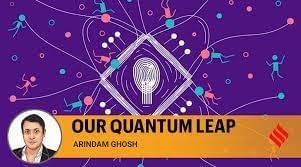
Why in News?
Recently, government approved the National Quantum Mission (NQM) at a total cost of Rs.6003.65 crore from 2023-24 to 2030-31, aiming to seed, nurture and scale up scientific and industrial R&D and create a vibrant & innovative ecosystem in Quantum Technology (QT).
About Quantum Technology:
- Quantum Technology is based on the principles of Quantum mechanics that was developed in the early 20th century to describe nature at the scale of atoms and elementary particles.
- The first phase of this revolutionary technology has provided the foundations of understanding of the physical world and led to ubiquitous inventions such as lasers and semiconductor transistors.
- The second revolution is currently underway with the goal of putting properties of quantum mechanics in the realms of computing.
Applications of Quantum Technologies:
- Electronics: Many modern electronic devices are designed using quantum mechanics. Examples include the laser, the transistor (and thus the microchip), the electron microscope, and magnetic resonance imaging (MRI).
- Cryptography: Researchers are currently seeking robust methods of directly manipulating quantum states.
- Efforts are being made to develop quantum cryptography, which will theoretically allow guaranteed secure transmission of information.
- Quantum computing: Another goal is the development of quantum computers, which are expected to perform certain computational tasks exponentially faster than classical computers.
- Instead of using classical bits, quantum computers use qubits, which can be in superpositions of states.
- Quantum programmers can manipulate the superposition of qubits in order to solve problems that classical computing cannot do effectively, such as searching unsorted databases or integer factorization.
- Disaster Management: Tsunamis, drought, earthquakes and floods may become more predictable with quantum applications.
- Research: It can help in solving some of the fundamental questions in physics related to gravity, blackhole etc.
- Similarly, the quantum initiative could give a big boost to the Genome India project, a collaborative effort of 20 institutions to enable new efficiencies in life sciences, agriculture and medicine.
Issues and Challenges in Quantum domain:
- High precision: Controlling quantum superposition in a highly controlled manner. The qubits tend to be very fragile and lose their “quantumness” if not controlled properly.
- Expensive hardware: The quantum infrastructure like superconductors, non-linear optical crystals, ultra-fast transistors, etc are very expensive
- Still in the Budding Stage: On the theoretical front lies the challenge of creating the algorithms and applications for quantum computers.
- These projects will also place new demands on classical control hardware as well as software platforms.
- Further, Information technology-based security infrastructure would never be the same once quantum systems become a reality, given the ultra-fast speed of computing power.
- New Warfare and conflict strategies: Need to develop integrated war-theatre strategies factoring in quantum technologies.
- Lack of adequate skilled manpower
Quantum Technology and India:
- Globally, research in this area is about two decades old, but in India, serious experimental work has been under way for only about five years.
- In 2018, the Department of Science & Technology unveiled a programme called Quantum-Enabled Science & Technology (QuEST) and committed to investing ₹80 crore over the next three years to accelerate research.
- The government in its budget 2020 has announced a National Mission on Quantum Technologies & Applications (NM-QTA) with a total budget outlay of Rs 8000 Crore for a period of five years to be implemented by the Department of Science & Technology (DST).
- The Indian government has launched the country’s first quantum computer simulator toolkit, called QSim, which will enable researchers and students to carry out cost-effective research in quantum computing.
Steps taken by the Government:
- In 2018, the government initiated serious discussions in quantum technologies and kick-started research projects across 51 organisations under QUEST – Quantum Enabled Science and Technology.
- Government of India declared quantum tech as a “mission of national importance” in 2019.
- About 100 government-funded projects on quantum and allied technologies have expanded various stages.
- In 2021, Department of Science and Technology and around 13 research groups from IISER Pune have established the I-HUB Quantum Technology Foundation (I-HUB QTF).
- In 2021, a Quantum Computing Applications Lab was launched by the Ministry of Electronics and Information Technology (MeitY) in collaboration with Amazon Web Services.
- In 2023, National Quantum Mission was launched with a plan of 8 years to develop key infrastructure and capabilities in the Quantum domain.
Source: Indian Express
RBI Withdraws Circulation of Rs.2000 Notes
Why in News?
The Reserve Bank of India (RBI) has decided to withdraw the Rs 2000 denomination banknotes from circulation.
RBI’s Circular
- The notes will continue as legal tender. The RBI has advised banks to stop issuing Rs 2,000 denomination banknotes with immediate effect and all Rs 2,000 currency notes must be exchanged before September 30, 2023.
- The RBI has advised people to approach bank branches for deposit and/or exchange of these banknotes.
- One can exchange Rs 2000 banknotes up to a limit of Rs 20,000 at a time. A non-account holder of a bank also can exchange Rs 2000 banknotes up to a limit of Rs 20,000 at a time at any bank branch.
Why were Rs 2000 notes introduced?
- The Rs 2000 note was introduced in November 2016 under Section 24(1) of The RBI Act, 1934, primarily with the objective of meeting the currency requirement of the economy after the legal tender status of Rs 500 and Rs 1000 notes was withdrawn.
Why has the RBI withdrawn Rs 2000 notes?
- Initial Objective has been met: With the fulfillment of the objective of other adequate stock of banknotes in other denominations to meet currency requirements, the printing of Rs 2000 notes was stopped in 2018-19.
- Clean Note Policy: The ‘Clean Note Policy’ of the Reserve Bank of India, it has been decided to withdraw the Rs 2000 denomination banknotes from circulation.
- The Clean Note Policy seeks to give the public good-quality currency notes and coins with better security features, while soiled notes are withdrawn out of circulation.
- The RBI had earlier decided to withdraw from circulation all banknotes issued prior to 2005 as they have fewer security features as compared to banknotes printed after 2005.
- However, the notes issued before 2005 continue to be legal tender. They have only been withdrawn from circulation in conformity with the standard international practice of not having notes of multiple series in circulation at the same time.
- Concerns of hoarding: The move comes amid concerns of the highest denomination notes being used to hoard black money.
Source: The Hindu
What are Asset Management Companies (AMCs)?
Why in News?
Capital markets regulator the Securities and Exchange Board of India (SEBI) recently proposed that asset management companies (AMCs) should set up surveillance and internal control systems for the deterrence of possible market abuse and fraudulent transactions.
About Asset Management Companies (AMCs):
- It is a firm that invests the funds pooled from individual investors in securities with the objective of optimal return for investors in exchange for a fee.
- AMC maintains the diversity of portfolio by investing in both high-risk and low-risk securities such as stock, debt, real- estate, shares, bonds, pension funds, etc.
- Because they have a larger pool of resources than the individual investor could access on their own, AMCs provide investors with more diversification and investing options.
- AMCs are colloquially referred to as money managers or money management firms.
- Those that offer public mutual funds or ETFs are also known as investment companies or mutual fund companies.
- SEBI is the Indian Capital Market Regulator which governs and controls every AMC in India.
Source: Indian Express
|
63 videos|5407 docs|1145 tests
|

